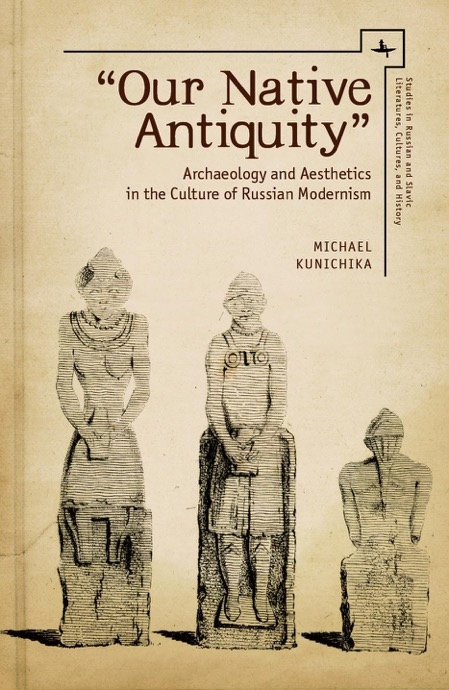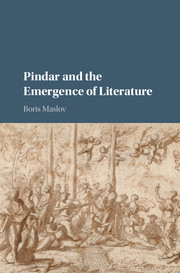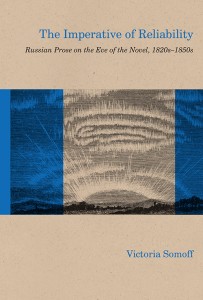RECENT WORK
[To request papers that not available online, please write to historicalpoetics@gmail.com]
Forthcoming
Ilya Kliger, “Tragedy as Social Imaginary in the Age of Russian Realism,” in Poniatiia, idei, konstruktsii:ocherki sravnitel’noi istoricheskoi semantiki , edited by Yury Kagarlitskiy, Dmitri Kalugin, and Boris Maslov. NLO (Moscow).
Boris Maslov, “Lyric Universality,” in Cambridge Companion to World Literature, ed. by B. Etherington and J. Zimbler. Cambridge: CUP.
Boris Maslov and Tatiana Nikitina. “Rhyme in European Verse: A Case for Quantitative Historical Poetics,” in Comparative Literature.
2017
Special issue of Poetics Today (38.3) “Historical Poetics in Theory” edited by Ilya Kliger with contributions:
Kate Holland, Narrative Tradition on the Border: Alexander Veselovsky and Narrative Hybridity in the Age of World Literature, 429-451.
Ilya Kliger, Historical Poetics between Russia and the West: Toward a Nonlinear Model of Literary History and Social Ontology, 453-483.
Boris Maslov, How to Murder a Work of Art: Philology, Historical Poetics, and the Morphological Method, 485-518.
Jessica Merrill, Historical Poetics and Poetic Language: Rethinking the Concept of Autonomy for Modern Literary Theory, 519-548.
Jessica Merrill, “High Modernism in Theory and Practice: Karel Teige and Tomáš Baťa.” Slavic Review 76.2 (2017): 428-454.
2016
Joshua V. Adams, Joel Calahan and Michael Hanson, “Reading Historical Poetics,” Modern Language Quarterly 77.1 (2016): 1-12.
Ilya Kliger and Boris Maslov, eds. Persistent Forms: Explorations in Historical Poetics. New York: Fordham UP (series “Studies in Poetics”), 2016. Table of Contents http://fordhampress.com/index.php/persistent-forms-cloth.html
NB: For illustrations to Michael Kunichika’s chapter see the bottom of the page.
Reviews of Persistent Forms: by Jonathan Stone in Slavic Review;Wang Xianhua in BMCR.
Ilya Kliger, “Non-synchronous Modernity and Tragic Nationalism in Dostoevsky and Nietzsche,” in Dostoevsky and Nietzsche: Philosophy, Morality, Tragedy, eds. Jeff Love and Jeffrey Metzger, Northwestern University Press, 2016.
Boris Maslov, “The Children of Mnemosyne: a contrastive metapoetics of Pindar and Bacchylides.” Philologia Classica 11.2 (2016) 223-243.
Boris Maslov, “The Genealogy of the Muses: an internal reconstruction of Archaic Greek metapoetics.” American Journal of Philology 137.3 (2016): 411-47.
Victoria Somoff, “Nonresistance to Fiction: Archaic Folktale vs. Later Tolstoy.” Slavic and Eastern European Journal 60.2 (Summer 2016): 284-306.
2015
Luba Golburt, “Alexander Pushkin as a Romantic,” in the Oxford Handbook of European Romanticism, ed. Paul Hamilton. Oxford University Press, 2015.
Dmitri Kalugin. “Soviet Theories of Biography and the Aesthetics of Personality.” Biography 38.3 (2015): 343-362.

Michael Kunichika, “Our Native Antiquity”: Archaeology and Aesthetics in the Culture of Russian Modernism. Academic Studies Press, 2015. http://www.academicstudiespress.com/slavic-studies-books/our-native-antiquity-archaeology-and-aesthetics-in-the-culture-of-russian-modernism

Boris Maslov, Pindar and the Emergence of Literature, Cambridge UP, 2015.http://www.cambridge.org/us/academic/subjects/classical-studies/classical-literature/pindar-and-emergence-literature
Scott Mehl, “The Beginnings of Japanese Free Verse and the Dynamics of Cultural Change.” Japan Review (2015).
Jessica Merrill, “Fol’kloristicheskie osnovaniia knigi Viktora Shklovskogo ‘O teorii prozy’,” Novoe literaturnoe obozrenie 2015, no. 3: 197-213.
Tatiana Nikitina and Boris Maslov, “Verse structure and literary tradition: Correlating rhyme and stress in the Onegin stanza.” Style 49.4 (2015): 439-469.
Victoria Somoff, The Imperative of Reliability: Russian Prose on the Eve of the Novel, 1820s-1850s. Northwestern UP, 2015. http://www.nupress.northwestern.edu/titles/imperative-reliability
2014
Luba Golburt, The First Epoch: The Eighteenth Century and the Russian Cultural Imagination. University of Wisconsin Press, 2014. http://uwpress.wisc.edu/books/5136.htm
Luba Golburt, “The Queen is Dead, Long Live the King: Paul’s Accession and the Plasticity of Late Eighteenth-Century Panegyric,” Russian Literature 75.1-4 (2014): 163-187.
Boris Maslov, “Why Republics Always Fail: Pondering Feofan Prokopovich’s poetics of absolutism.” ВИВЛIОθИКА: E-Journal of Eighteenth-Century Russian Studies 2 (2014) 24-46.
2013
Luba Golburt, “The Portrait Mode: Zhukovskii, Pushkin and the Gallery of 1812.” In Rites of Place: Public Commemoration and Celebration in Russia, eds. Julie Buckler and Emily Johnson, 105-132. Evanston, IL: Northwestern University Press, 2013.
Kate Holland, The Novel in the Age of Disintegration: Dostoevsky and the Problem of Genre in the 1870s. Northwestern University Press, 2013.
Boris Maslov, “Comparative Literature and Revolution, or the Many Arts of (Mis)Reading Alexander Veselovsky.” Compar(a)ison: An International Journal of Comparative Literature 2008 [2013] 2: 101-129.
Boris Maslov, “The Dialect Basis of Choral Lyric and the History of Poetic Languages in Archaic Greece.” Symbolae Osloenses 87 (2013): 1-29.
2012
Armen Avanessian, Anke Hennig, Präsens: Poetik eines Tempus (Zurich: Diaphanes, 2012). Russian translation forthcoming in 2013. English translation in preparation.
Ilya Kliger, “Resurgent Forms in Ivan Goncharov and Alexander Veselovsky: Toward a Historical Poetics of Tragic Realism.” Russian Review 71.4 (2012): 655-672.
Michael Kunichika, “ ‘The Scythians Were Here…’ On Nomadic Archaeology, Modernist Form, and Early Soviet Modernity.” Ab Imperio. 2012. № 2. P. 229-257.
Michael Kunichika, “’The Ecstasy of Breadth’: The Odic and the Whitmanesque in Dziga Vertov’s One Sixth of the World (1926).” Studies in Russian & Soviet Cinema 6.1 (2012) 53-74.
Boris Maslov, “Pindaric temporality, Goethe’s Augenblick, and the invariant plot of Tiutchev’s lyric.” Comparative Literature 64.4 (2012) 356-381.
Boris Maslov, “The real life of the genre of prooimion.” Classical Philology 107.3 (2012) 191-205.
Boris Maslov, “From (theogonic) mythos to (poetic) logos: reading Pindar’s genealogical metaphors after Freidenberg.” Journal of Ancient Near Eastern Religions 12.1 (2012) 49-77.
2011
Ilya Kliger, The Narrative Shape of Truth: Veridiction in Modern European Literature. University of Pennsylvania Press, 2011.
Ilya Kliger, “Genre and Actuality in Belinskii, Herzen, and Goncharov: Toward a Genealogy of the Tragic Pattern in Russian Realism.” Slavic Review 70.1 (2011) 45-66.
Ilya Kliger, “Dostoevsky and the Novel-Tragedy: Genre and Modernity in Ivanov, Pumpyansky, and Bakhtin.” PMLA 126.1 (2011) 73–87.
Jonathan Ullyot, “Molloy or Le conte du Graal.” Modern Philology 108.4 (2011) 560-79.
2010
Ilya Kliger, “World Literature Beyond Hegemony in Yuri Lotman’s Cultural Semiotics,” Comparative Critical Studies 7.2-3 (2010) 257-274.
Leslie Kurke, Aesopic Conversations: Popular Tradition, Cultural Dialog, and the Invention of Greek Prose, Princeton UP , 2010.
Victoria Somoff, “No Need for Dogs or Women: Muteness in Turgenev’s ‘Mumu’.” Russian Literature 68:3-4 (2010), 501-520.
before 2010
Christopher Faraone, The Stanzaic Architecture of Early Greek Elegy, Oxford UP, 2008.
Kate Holland, “Novelizing Religious Experience: The Generic Landscape of The Brothers Karamazov,” Slavic Review 66.1 (2007): 63-81
Kate Holland, “Literary Contexts of Triangular Desire: Natalie and Alexander Herzen as Readers of George Sand,” Russian Literature 61. 1-2 (2007): 175-205
Leslie Kurke, “Plato, Aesop, and the Beginnings of Mimetic Prose,” Representations 94 (2006) 6-52.
Richard P. Martin, “Words Alone are Certain Good(s): Philology and Greek Material Culture,” Transactions of the American Philological Association 138.2 (2008) 313-349.
Boris Maslov, “The semantics of aoidos and related compounds: Towards a historical poetics of solo performance in Archaic Greece.” Classical Antiquity 28.1 (2009) 1-38.
Igor Smirnov. “O teorii zhanrov.” Die Welt der Slaven 50.2 (2005): 322-361.
Victoria Somoff, “On the Metahistorical Roots of the Fairytale.” Western Folklore 61 (2002), 277-294.
Victoria Somoff (Nesterenko), “Proizvedenie morali: analiz basni” (Production of Morality: Analysis of the Fable, Voprosy literatury, 2 (1998), 97-120.
Victoria Somoff (Nesterenko), “Chudo kak sobytie v slove” (Miracle as a Narrative Event), Voprosy literatury, 1 (1997), 103-116.


